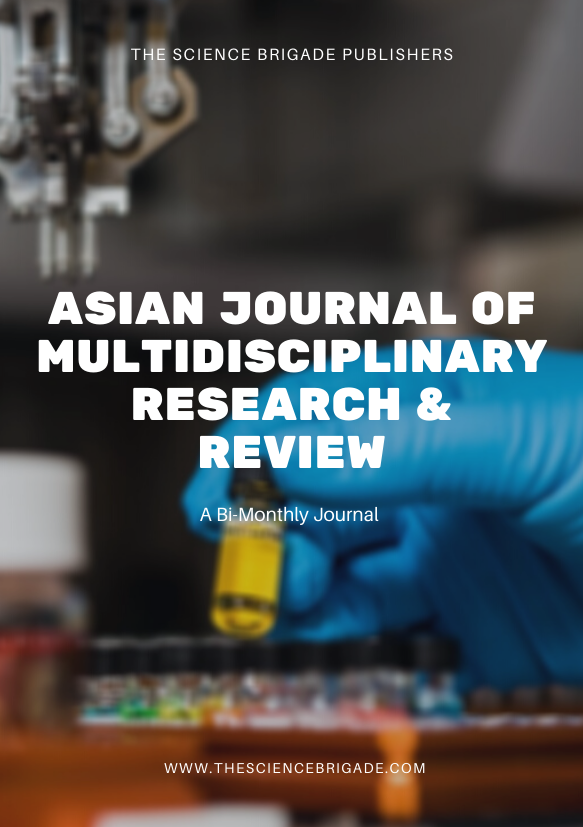The surge in immigration to the United States after the passage of the Immigration Act of 1965, altered both its demographic and cultural composition. The shift in its ‘melting pot’ theory that advocated immigrants to assimilate into America’s cultural core to embracing a multicultural outlook, enhanced the nation’s status as home to diverse cultures. However, America’s transition into a multicultural nation often experiences setbacks when occurrences like the 9/11 create a rift among cultural communities creating a debate on the politics of identity. In addition, dominant narratives of hegemony and prejudices are reinstated when such incidents seep into the multicultural fabric of the nation. Such is the case with India as well, where events like the Godhra Riots impact relationships within one’s private sphere. Identities become markers of ‘inclusion’ and ‘exclusion’ of an individual within the society. With Chitra Banerjee Divakaruni’s Oleander Girl (2013) as the vantage point for this study, this paper aims to examine the close relationship between power and identity at the individual, communal and national level. Located within the cultural spaces of Kolkata (India) and the United States, the novel traces Korobi, the protagonist’s journey from India to the United States in the quest of her own ‘identity.’ The complex engagement between an individual’s everyday life and larger aspects of identity such as race, ethnicity, gender and class are also addressed within this paper. The paper concludes on the positive note emphasizing the enabling effect that power has over the creation, choice and performance of an identity with special reference to Korobi. Within the present context of strong divide between communities world over, it is essential to explore the idea of identity in her works.
Deciphering the Politics of Identity in the Multicultural Context of Chitra Banerjee Divakaruni’s Oleander Girl
Publication Information
Journal Title: Asian Journal of Multidisciplinary Research & Review
Author(s): Lynsha Lobo
Published On: 02/01/2024
Volume: 4
Issue: 6
First Page: 93
Last Page: 104
ISSN: 2582-8088
Publisher: The Law Brigade Publisher
Cite this Article
Lynsha Lobo, Deciphering the Politics of Identity in the Multicultural Context of Chitra Banerjee Divakaruni’s Oleander Girl, Volume 4 Issue 6, Asian Journal of Multidisciplinary Research & Review, 93-104, Published on 02/01/2024, Available at https://ajmrr.thelawbrigade.com/article/deciphering-the-politics-of-identity-in-the-multicultural-context-of-chitra-banerjee-divakarunis-oleander-girl/
Abstract
Share this research
Latest Publications

License Information
Copyright © [hfe_current_year]
Lynsha Lobo

Ownership and Licensing:
Authors of this research paper submitted to the Journal of Science & Technology retain the copyright of their work while granting the journal certain rights. Authors maintain ownership of the copyright and have granted the journal a right of first publication. Simultaneously, authors agreed to license their research papers under the Creative Commons Attribution-NonCommercial-ShareAlike 4.0 International (CC BY-NC-SA 4.0) License.
License Permissions:
Under the CC BY-NC-SA 4.0 License, others are permitted to share and adapt the work, as long as proper attribution is given to the authors and acknowledgement is made of the initial publication in the Journal of Science & Technology. This license allows for the broad dissemination and utilization of research papers.
Additional Distribution Arrangements:
Authors are free to enter into separate contractual arrangements for the non-exclusive distribution of the journal’s published version of the work. This may include posting the work to institutional repositories, publishing it in journals or books, or other forms of dissemination. In such cases, authors are requested to acknowledge the initial publication of the work in the Journal of Science & Technology.
Online Posting:
Authors are encouraged to share their work online, including in institutional repositories, disciplinary repositories, or on their personal websites. This permission applies both prior to and during the submission process to the Journal of Science & Technology. Online sharing enhances the visibility and accessibility of the research papers.
Responsibility and Liability:
Authors are responsible for ensuring that their research papers do not infringe upon the copyright, privacy, or other rights of any third party. The Journal of Science & Technology and The Science Brigade Publishers disclaim any liability or responsibility for any copyright infringement or violation of third-party rights in the research papers.




